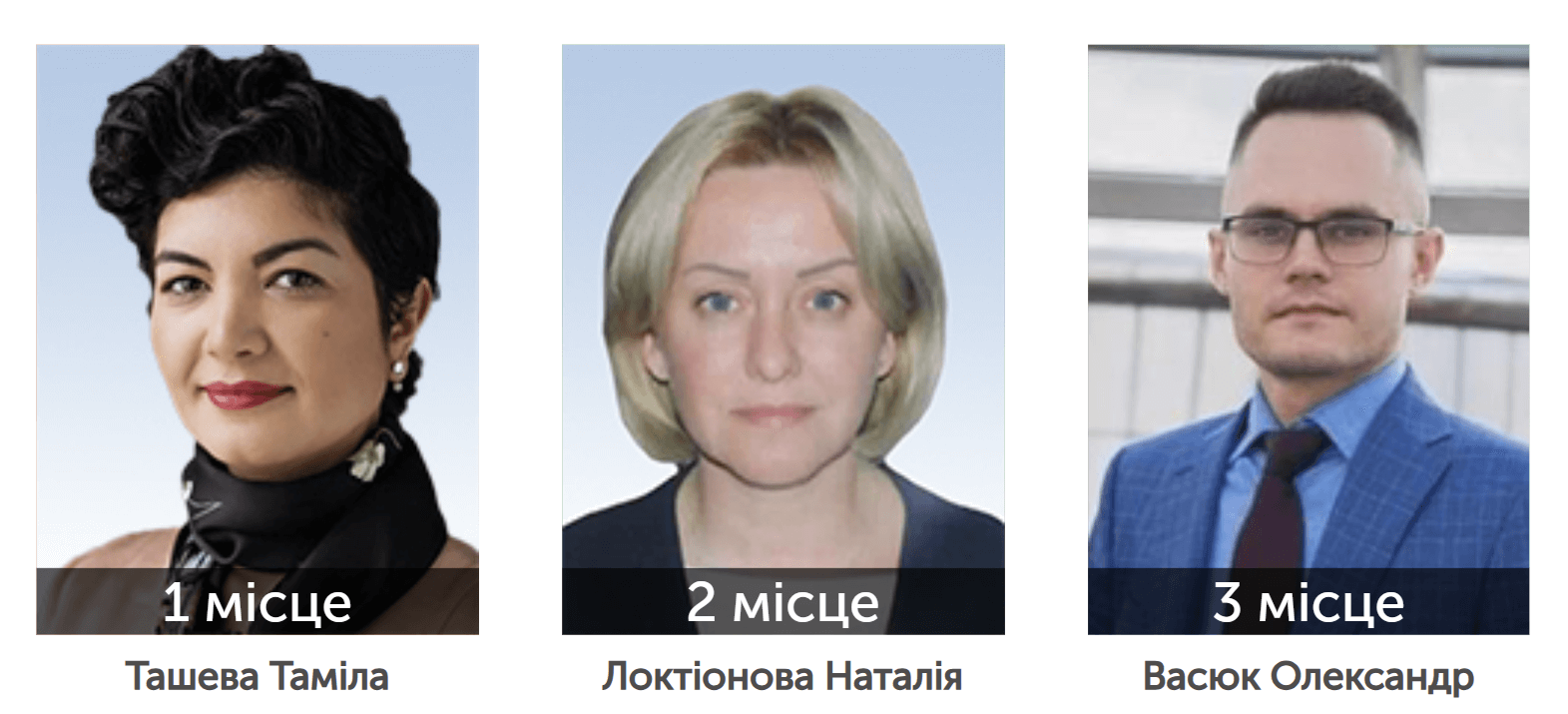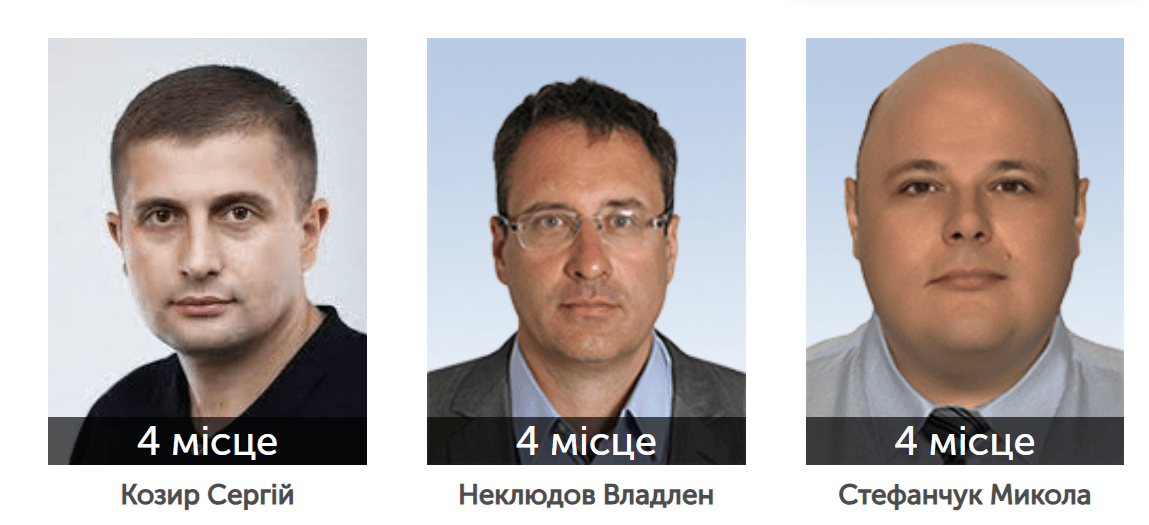Members of Parliament have begun to vote more actively in favor of reforms. During the 12th session, Reform Index experts did not record a single counter-reform—i.e., a regulatory act with a negative impact on the country’s economic environment. Instead, MPs supported 39 reformist initiatives. Below, we explore which lawmakers are driving the country’s reform progress and who is dragging down the overall efficiency of Parliament.
Key findings
- According to Reform Index experts, during its 12th session, Parliament passed 39 reform-oriented laws—with no counter-reforms among them. Since the beginning of the 9th convocation of the Verkhovna Rada, a total of 493 reforms and 14 counter-reforms have been recorded.
- In the 12th session, 13.25% of MPs (53 out of 400) voted for all reformist laws, earning a perfect 100% Efficiency Score for the session. However, their overall rankings across all twelve sessions range from 1st to 35th place due to inconsistent support in previous sessions.
- Among the top performers of both the 12th session and the overall ranking (with Efficiency Scores of 95% and above) are members of the Servant of the People party, Tamila Tasheva from Holos, and non-affiliated MP Maryana Bezuhla.
- By the end of the 12th session, 12 MPs had received an Efficiency Score of 0%—meaning they did not vote for a single reform. Some are habitual absentees; others are under investigation or even on the wanted list.
- Cumulatively, over the course of the 9th convocation, 21% of MPs are classified as reformers, 62% as moderate reformers, and 17% as counter-reformers. In the 12th session alone, 31% were reformers, 47% moderate reformers, and 22% counter-reformers. The highest share of reformers—both in the 12th session and across the entire convocation—belongs to the Servant of the People faction (82%).
- Dovira and Holos are moderate reformers, with Efficiency Scores between 62% and 65%. Former members of the now-banned OPFL have recently shown little support for reforms. MPs from Batkivshchyna and For Future are mostly classified as counter-reformers.
- Women show stronger support for reforms than men: while the share of reformers is equal between genders, the proportion of counter-reformers among women is half that of men.
The MP Efficiency Score is a tool that evaluates the performance of members of the Verkhovna Rada based on how they vote on reformist and counter-reformist bills.
The list of reformist and counter-reformist laws, along with their corresponding scores, is based on data from the Reform Index project. Experts assess each law selected by the editorial board on a scale from -5 to +5, depending on its potential impact—positive or negative—on the economy and the country overall.
We then analyze how each MP voted on these laws. If an MP supports a reformist bill, they earn the number of points assigned to that bill by Reform Index experts. Conversely, if an MP votes in favor of a counter-reform, their total score is reduced by the corresponding number of points. Voting “against” or being absent during the vote is scored as zero points.
The Efficiency Score is presented as a percentage, reflecting the ratio of points earned by an MP to the maximum possible points during their term. For example, if an MP earns 80 out of a possible 100 points over 100 days in office, their Efficiency Score is 80%. The ideal score—100%—and thus the top spot in the rankings, goes to MPs who vote for all reformist laws and do not support any counter-reforms. In contrast, MPs who systematically ignore key reforms or fail to attend votes will have low scores.

Based on the Efficiency Score, we categorize all MPs into three groups: reformers (Efficiency Score from 100% to 89% inclusive), moderate reformers (from 88.99% to 40% inclusive), and counter-reformers (below 40%).
An MP’s ranking is determined by their average Efficiency Score across all sessions during which they have served in Parliament. The overall level of reform support—i.e., the Efficiency Score of the Verkhovna Rada—is calculated as the average score of all MPs across all sessions.
The Efficiency Score is not an exhaustive measure of an MP’s performance. We also evaluate MPs’ involvement in initiating reformist and counter-reformist draft laws. In addition, when assessing an MP’s overall effectiveness, it is important to consider their work in parliamentary committees and their role in lobbying for beneficial laws or pushing back against obstructive bills—aspects that our rankings do not reflect. For a more complete picture, we recommend turning to other sources. For example, the PolitHub portal by the CHESNO Movement offers profiles of politicians, including documented cases of unethical or criminal conduct, as well as their voting record on harmful bills.
Some people’s deputies have been unable to fulfill their duties for valid reasons. According to publicly available information, Roman Lozynskyi and Roman Kostenko (Holos), Mykhailo Zabrodskyi (European Solidarity), Serhii Rudyk (For Future), Sviatoslav Yurash (Servant of the People), and non-affiliated MP Liudmyla Buimister have joined the ranks of the Armed Forces of Ukraine. At the same time, Yana Zinkevych (European Solidarity) serves as the commander of the volunteer battalion Hospitallers. We do not count missed votes for these MPs, so their Efficiency Scores are not reduced due to their absence from parliamentary sessions. If an MP publicly announces their return to parliamentary work, we exclude missed votes from February 24, 2022, up to the date of their return.
Missed votes are also not counted when calculating the rankings of MPs who were on maternity leave.
If you are aware of legitimate reasons for an MP’s absence during voting, please let us know, and we will recalculate their Efficiency Score.
In the last two sessions, MPs have shown a consistent pace in adopting reforms (Figure 1). During the 12th session, which lasted from September 2024 to February 2025, lawmakers passed 109 laws, 39 of which were classified as reforms.
No counter-reforms were recorded during this period. Additionally, seven of the reformist laws received a score of +2 points or higher—indicating substantial reforms. These include laws that overhaul the customs administration system and update regulations for brokers, a reform of the Accounting Chamber, changes to the disability determination process, the reinstatement of medium-term local budget planning, stricter requirements for procurement in construction services, and a renewed subsoil development strategy. As in previous sessions, the key areas of focus remain business sector reforms, social protection, and anti-corruption efforts.
Figure 1. Number of reforms adopted per session
Note 1. During the seventh session, at the onset of the full-scale invasion, the Rada adopted eight laws for which voting records are not available on the official website of the Verkhovna Rada. Although Reform Index experts evaluated these laws, they were not included in calculating MPs’ Efficiency Scores. In response to our inquiry, the Verkhovna Rada stated that between March 3 and April 14, 2023, voting in the chamber was conducted using an electronic system without a recorded roll-call vote due to security concerns. Note 2. Each law in the chart is attributed to the session in which it was passed. However, our database includes only those laws that the President has signed. Therefore, if the President signs laws from previous sessions with a delay, MPs’ scores for those sessions are recalculated accordingly.
Performance in the most recent sessions has slightly lowered the average score of all MPs. The cumulative rating across twelve sessions shows that MPs, on average, supported reforms at a level of 68%. The highest average Efficiency Score — 70% — was recorded following the 10th session. This decline is primarily due to the fact that many MPs voted for counter-reforms during the 11th session. Another contributing factor is the growing number of counter-reformers who systematically fail to attend parliamentary sessions and, therefore, receive a score of zero.
A new leader has emerged in the overall ranking across twelve sessions — Tamila Tasheva from the Holos faction. She received her parliamentary mandate in December 2024 and has since supported every reformist bill passed by Parliament. In the overall ranking for the 9th convocation, representatives of Servant of the People continue to hold top positions: Nataliia Loktionova, with 99% support for reforms (her score dropped slightly due to backing two counter-reforms in the previous session), and Oleksandr Vasiuk, with 98% support. Close behind in the reformers’ ranking are Serhii Kostriichuk, Vladlen Nekliudov, Mykola Stefanchuk, and Serhii Kozyr — all with Efficiency Scores of 97%.



The results of the 12th session slightly impacted the standings of long-time reform leaders in the cumulative ranking that covers the entire period of the 9th convocation. For instance, Mykola Tararin, who topped the ranking for the past three sessions, dropped to fifth place with a score of 96%.
The complete consolidated rating of MPs for the 12 sessions of the Verkhovna Rada is available at the link.
Top-performing MPs of the 12th session
At the end of the 12th session, MPs filled 94 positions in the reformers’ ranking. The average level of reform support during the session stood at 67%.
A total of 53 out of 400 MPs achieved a perfect Efficiency Score of 100% in the 12th session—significantly more than in the previous session, when only Serhii Rudyk reached this mark. This result is not unexpected, as no counter-reforms were introduced during the period under review. As a result, becoming a top performer simply required attending sessions and voting in favor of reforms.
Among the 12th session’s leaders were 51 MPs from Servant of the People, Tamila Tasheva from Holos, and non-affiliated MP Maryana Bezuhla. Nine MPs achieved a perfect score for the first time during their entire tenure in Parliament. The most notable rise in reform activity came from Serhii Lytvynenko, who scored 100% this session, up from 57% in the previous one, with an average of 62% across the first eleven sessions.
Second place, with an Efficiency Score of 99%, was shared by four consistently active reformers from Servant of the People: Serhii Kozyr, Bohdan Kytsak, Bohdan Yaremenko, and Andrii Zhupanin. Third place (98%) was occupied by 20 MPs: 19 from Servant of the People and one from Dovira (Volodymyr Areshonkov).
Counter-reformers of the 12th session
The number of least effective MPs continues to grow. During the 12th session, 12 people’s deputies recorded an Efficiency Score of 0%, compared to nine such MPs in the 11th session.
Another ten MPs recorded Efficiency Scores below 10%. Among the least active are representatives from all parliamentary factions.
Consistently inactive counter-reformers include Anzhelika Labunska, Serhii Shakhov, and Fedir Khrystenko, who have not appeared in the Rada since 2022; Stepan Ivakhiv and Ihor Palytsia, absent since 2023; Nestor Shufrych, Oleksandr Ponomariov, and Oleksandr Dubinskyi, all under criminal investigation; and Yaroslav Dubnevych and Artem Dmytruk, both currently wanted by law enforcement. Mykola Tyshchenko, who attributes his absences to illness, is also the subject of a criminal investigation.
How is reform support among MPs changing?
As a rule, we classify MPs into three groups based on their level of reform support: reformers (Efficiency Score from 100% to 89% inclusive), moderate reformers (from 88.99% to 40% inclusive), and counter-reformers (below 40%).
During the 12th session, 125 MPs — or 31% of the Verkhovna Rada — fell into the reformer category (Figure 2). This marks a rebound from the sharp drop in reformer share during the 11th session when only 22% of MPs qualified. The current level brings the share of reformers back in line with what was typical in earlier parliamentary sessions.
Figure 2. Share of reformers, moderate reformers, and counter-reformers in the 3rd, 8th, 11th, and 12th sessions, and the cumulative value across all sessions
The share of moderate reformers dropped from 64% in the 11th session to 47% in the 12th. At the same time, the proportion of counter-reformers rose significantly — from 15% to 22% — mainly due to decreased parliamentary activity among MPs.
Ninety-five percent of reformers are members of the Servant of the People faction. They were joined by two representatives from Dovira (Volodymyr Areshonkov and Serhii Velmozhnyi), Taras Batenko from the For Future faction, Tamila Tasheva from Holos, and independent MPs Maryana Bezuhla and Ruslan Stefanchuk.
Figure 3. Level of reform support by individual MPs during the 12th session, by faction
Looking at how MPs from each faction voted (Figure 3), we can see that members of Servant of the People are predominantly reformers: 123 out of 232 MPs in the faction achieved an Efficiency Score of 89% or higher.
MPs from Dovira, Holos, Platform for Life and Peace, European Solidarity, and Restoration of Ukraine are mostly moderate reformers. In Dovira, 94% of members fall into this group, followed by 80% in the pro-Russian Platform for Life and Peace, 76% in Restoration, 55% in European Solidarity, 50% in Holos. The highest shares of counter-reformers are found in Batkivshchyna (70%) and For Future (53%).
Opposition forces have not had a single representative among reformers for several sessions in a row.
During the 12th session, 14 out of 27 MPs from European Solidarity were classified as moderate reformers. However, the average Efficiency Score for the faction dropped from 47% to 37%. For example, MP Mykola Velychkovych showed a sharp decline in reform activity: his Efficiency Score fell to 1% in the 12th session, down from 39% in the 11th session and a cumulative score of 57% over his term in Parliament. The highest-performing MP in the European Solidarity faction during the 12th session was Oleksii Honcharenko, with a score of 60%.
Seventeen out of 21 former members of the now-banned OPFL faction were classified as moderate reformers. Hryhorii Surkis and Serhii Liovochkin are counter-reformers, while Nestor Shufrych and Oleksandr Ponomariov—both under suspicion of treason—received a score of zero due to their absence from parliamentary sessions. Members of this faction slightly improved their scores during the 12th session, following a pattern of vote sabotaging in the 11th session. However, their support for reforms still does not match the levels seen during the 8th to 10th sessions (Figure 4).
A majority of MPs from Batkivshchyna (70% of the faction) are counter-reformers. This represents a notable improvement compared to the 11th session when 92% of the faction’s members fell into this category. The faction’s average Efficiency Score rose to 31%, up from 24% in the previous session. The top performers in Batkivshchyna—Ivan Kyrylenko, Anatolii Tsymbaliuk, and Valentyn Nalyvaichenko — each recorded an Efficiency Score of 61%.
MPs from all factions were represented among the counter-reformers of the 12th session. Out of 89 MPs in this category, 22 were from Servant of the People, 17 were from Batkivshchyna, and 14 were non-affiliated. The faction with the fewest counter-reformers was Dovira, with only one MP — Serhii Shakhov, a consistent absentee.
In summary, the primary reform drivers in the 9th convocation of the Verkhovna Rada remain, as expected, MPs from Servant of the People (83%). In second place is Dovira, with an average Efficiency Score of 66%, followed by Holos with 63% (Figure 4). Notably, these are the same factions that not only actively vote for reforms but also initiate them — an observation supported by the findings of one of our previous studies.
Figure 4. Efficiency Score dynamics of each faction across all sessions
Which sectors receive the most reform support from MPs?
All reform initiatives included in the Reform Index are broadly grouped into six key areas: Governance, Public Finance, Monetary Policy, Business Environment, Energy Independence, and Human Capital. This allows us to take a closer look at which areas of public policy lawmakers prioritize when casting their votes.
Figure 5. Average level of reform support by sector
During the 12th session, MPs most actively supported reformist legislation in the area of Human Capital, with an average support rate of 70%. Within this category, laws related to the sub-area of Education received the highest level of backing. In contrast, MPs showed the weakest support for laws aimed at strengthening energy independence.
Servant of the People members showed the strongest support for reforms in Monetary Policy and Governance (Figure 5). Representatives of other factions also favored these areas.
Who votes better for reforms: men or women?
Among the 84 women serving in the Verkhovna Rada, nine MPs (11% of all female deputies) were the strongest reform supporters during the 9th convocation. The share of reformers among male MPs is nearly identical. The top three female reformers are Tamila Tasheva from Holos, Nataliia Loktionova from Servant of the People, and independent MP Maryana Bezuhla.
The vast majority of women fall into the moderate reformer category—75% of all female MPs—compared to 60% among men. While 16% of male MPs are classified as counter-reformers, only 6% of women fall into that group. The average cumulative Efficiency Score is 69% for women and 67% for men.
Conclusion
By the end of the 12th session of the Verkhovna Rada, more than a third of MPs demonstrated consistent support for reforms. From September 2024 to February 2025, no counter-reforms were recorded. As a result, MPs who routinely vote for all bills—whether reformist or not—were able to more easily recover their standings after the 11th session, during which two anti-reform measures were adopted.
The 12th session signals a return to the usual level of reformist activity after the slowdown during the 11th session. Still, Parliament’s overall efficiency remains below its historical high. This makes it all the more important to mobilize MPs to carry out their duties—especially in factions with a high and, sadly, growing share of counter-reformers.
Photo: depositphotos.com/ua
Attention
The authors do not work for, consult to, own shares in or receive funding from any company or organization that would benefit from this article, and have no relevant affiliations




